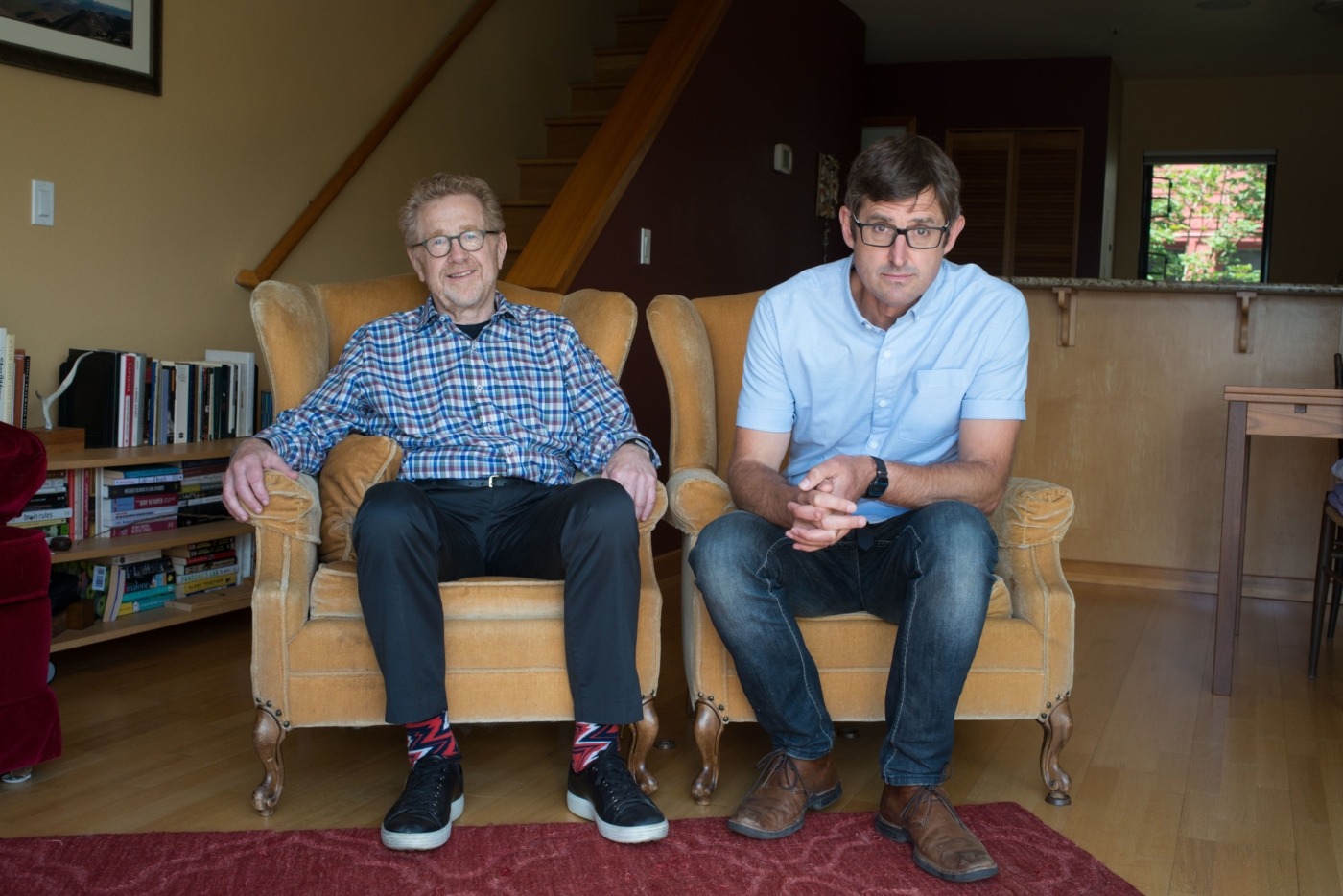Louis Theroux’s Altered States – Choosing Death
Louis Theroux was back on our screens on Sunday night with the second installment of his Altered States miniseries on BBC Two. In this episode, entitled ‘Choosing Death’, Theroux explored assisted dying in the USA, where the law permits terminally-ill people to end their own lives in seven states. As with everything Theroux touches, ‘Choosing Death’ was gripping, emotional, and intense.
Louis Theroux travelled to California, where terminally-ill patients can have life-ending medication prescribed to them by their doctor if they fulfill the criteria of having six months (or less) left to live, are of sound mind and can self-administer the drug. In 2017, 374 people decided to end their lives with this medication in California alone, many of which were aged over 60.
The viewer is introduced to Gus, a 74-year-old man who has been diagnosed with stage four pancreatic cancer, meaning he had less than six months left to live. He is one of the many people in California opting for AB15 – the law which grants terminally ill people to end their lives. He explained that he did not want to be a burden to his family or a victim of his disease, and thus has been a long-time advocate for the right to die on your own terms. It appeared as if Gus took the matter very lightly, saying he’ll “go out with some class and style”, instead of dying in a hospice in a coma of starvation and dehydration. Gus spoke some hard truths and even made jokes, rattling his $350 lethal dose of medication in front of the camera pretending to read the instructions: “Swallow, die, repeat if necessary.”
It appeared as if Gus took the matter very lightly, saying he’ll “go out with some class and style”, instead of dying in a hospice in a coma of starvation and dehydration
Theroux also meets Laurie, a 47-year-old mother who’s planning her own death. Three and a half years ago, Laurie was told she had six months left to live, and since then she’s lived with cancer in her liver, lungs, bones, lymphatic system and maybe even her brain – as indicated by a lump on her forehead, but she didn’t want to confirm it with a scan. She spoke to Louis about how the option of choosing how and when she dies gives her control. “How we die impacts the people we leave behind for the rest of their lives,” she added, glancing at her 11-year-old son. She explained that she was annoyed that she was causing so much trauma to her family, when, as a mother, she felt she was supposed to protect them from just that.
At this point, it was very difficult not to feel overwhelmed with emotion, and what made this episode so touching was Theroux’s inexhaustible empathy and understanding towards the people who wanted to end their lives. While their actions are legal in seven states already, this option is being considered in 23 more. Some people believe that the law does not do enough. One such group is the Final Exit Network.
Theroux travels to Oregon, where he meets two people who work for the Final Exit Network, which goes further than the existing laws and gives advice to people who wish to end their lives, without necessarily being terminally-ill. He met with the Network to talk about the work they’re doing for Deborah, a 65-year-old woman. Deborah is heartbroken after losing her husband five months earlier, living with physical ailments and trapped in a wheelchair after a car crash. Theroux visits Deborah in her home with the Final Exit Network, where the members of the group showed her how to assemble the device she could use to end her own life. While very difficult and intense to watch, this did bring to the forefront of the discussion the idea of strangers working in a legal grey area giving advice on whether and how people should end their life.
While very difficult and intense to watch, this did bring to the forefront of the discussion the idea of strangers working in a legal grey area giving advice on whether and how people should end their life
Deborah’s story was one which brought many issues within society to light. Here we were, watching Louis Theroux talk to a woman who, one would assume, had lots to live for, but she felt as if she was just existing. This brings into question whether we as a society do enough to support the most vulnerable, and while Deborah wanted her right to die well, was her decision made out of loneliness?
Whatever viewers choose to believe is right and wrong in this debate, one thing we can all agree on in this episode is that Theroux gave a voice to the terminally ill people, treating their wishes and desires with sensitivity and respect. It may be tough viewing, but it’s something that needs to be seen. Theroux’s empathy, compassion, and sensitivity means that we can learn more about issues so often avoided, and as Deborah concluded: “there are people out there that are too afraid to talk about it… I’m not afraid of dying anymore.”
The next episode of Louis Theroux’s Alternate States continues on 25 November with ‘Take My Baby’, where Theroux will investigate adoption in California, where pregnant women can receive up to $50,000 for giving up their new-born babies to adoptive parents.
Previous Episode: Louis Theroux’s Altered States – ‘Love Without Limits’

Comments
Comments are closed here.